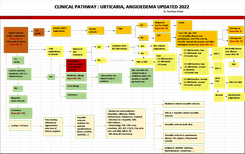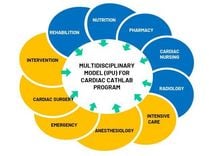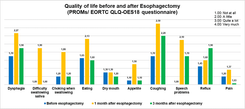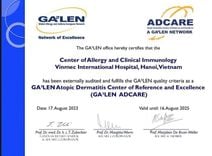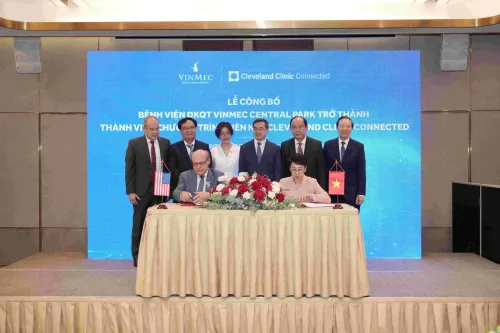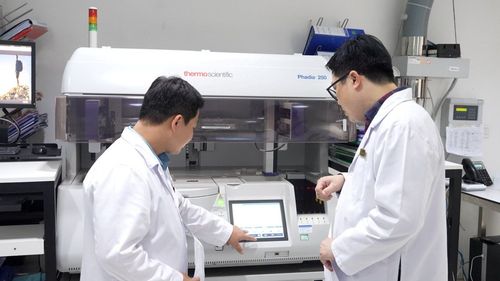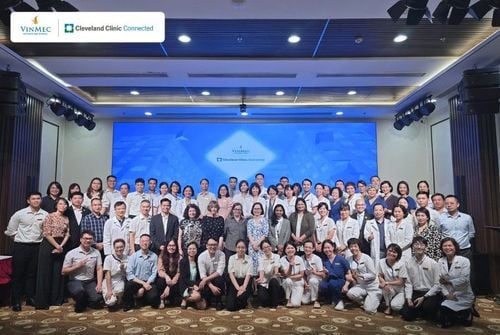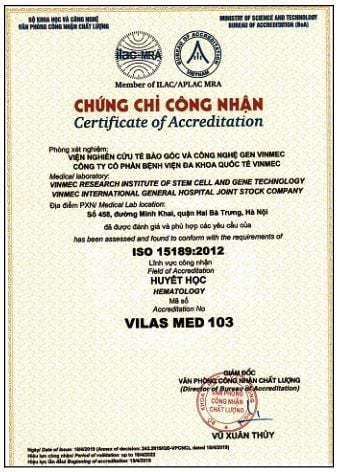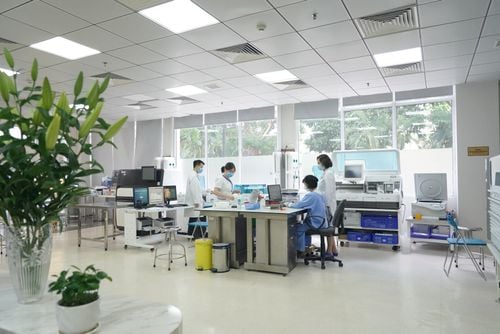Achieving two world-leading ACC (American College of Cardiology) certifications in coronary intervention and heart failure management has brought Vinmec closer to its goal of becoming a Center of Excellence (COE) in cardiology in Vietnam.
Breakthrough Outcomes: Early Discharge and Reduced Complications
After undergoing coronary intervention in 2019, Mr. Duong Chinh Thuc (79, from Cau Giay, Hanoi) recently experienced chest pain. A CT scan at Vinmec Times City Hospital revealed 80% coronary artery stenosis. According to the American College of Cardiology (ACC), intervention for this level of stenosis is not always necessary or beneficial. Intervention was only recommended after an echocardiogram indicated signs of myocardial ischemia.
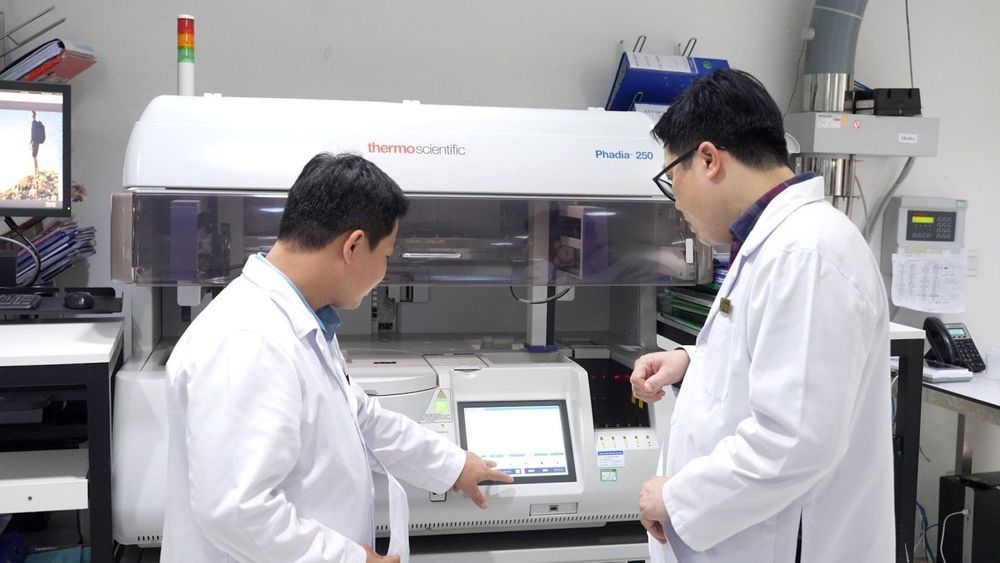
According to the ACC, a comprehensive and rigorous global standard for cardiovascular treatment, the physician's goal is not only to address the disease but also to measure the improvement in the patient's quality of life after treatment. Therefore, before performing the intervention, doctors conducted an interview using the ACC-recommended "Angina Questionnaire" to assess how coronary artery disease was limiting the patient's normal activities.
"I’ve lived with coronary artery disease for 30 years, along with hypertension, dyslipidemia, and prediabetes. Initially, I was hesitant, but after the Vinmec doctors provided very convincing recommendations, I felt reassured to proceed with the treatment," shared Mr. Thuc.
Dr. Do Xuan Chien from the Vinmec Times City Cardiology Center explained that before intervention, doctors evaluated potential risks to proactively prevent complications during and after the procedure. To enhance safety and effectiveness, the intervention process involved multidisciplinary collaboration among specialists in interventional cardiology, emergency care, anesthesia, and cardiac surgery.
"Everything was carried out following a standardized clinical protocol to handle any arising situations optimally. After the procedure, the patient continued to receive follow-up care, nutritional guidance, rehabilitation, and health education. This approach helped patients recover faster and be discharged earlier while ensuring their safety," Dr. Do Xuan Chien added.
Thanks to the "U.S. standard" treatment and care protocol at Vinmec, Mr. Thuc was discharged after just two days, instead of the usual four. Moreover, the patient gradually regained the ability to perform normal physical activities that had previously been restricted.

According to Vinmec’s statistics, nearly a year after implementing the ACC standards, 100% of patients undergoing coronary intervention at Vinmec, including acute myocardial infarction cases, were discharged safely within two days. Common complications, such as kidney failure caused by contrast agents post-procedure, decreased from 17% to nearly 0%.
Establishing a Center of Excellence for Cardiology in Vietnam
Continuous and optimized care at every stage, even after discharge, is the goal of Vinmec’s coronary intervention program following ACC standards. This program is based on the philosophy of "value-based care," ensuring that treatment outcomes and service quality align with the costs incurred.
Effectiveness for each patient is measured starting from a clear evidence-based care process and treatment protocols, covering all three phases: pre-hospitalization, during the procedure, and post-discharge. These outcome indicators have been verified by the ACC and are rated as equivalent to 50% of hospitals in the United States. Furthermore, patient satisfaction is also documented through evaluations of treatment effectiveness and service experience at the hospital.
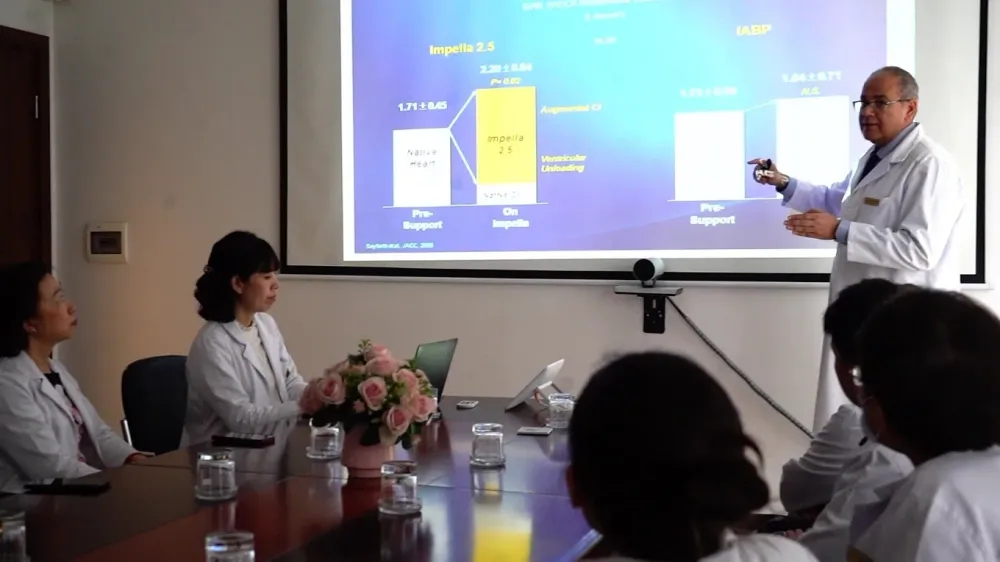
According to Prof. Dr. Bui Duc Phu, Director of the Vinmec Cardiology Center, in cases of acute myocardial infarction, the emergency intervention activation process at Vinmec reduces the time from a patient’s arrival at the emergency entrance to balloon angioplasty for blocked coronary arteries to under 60 minutes. This is a critical factor in ensuring the heart muscle is revascularized as quickly as possible, minimizing necrosis.
For planned interventions, timely and appropriate indications, supported by stress testing and precise diagnostic tools such as intravascular ultrasound (IVUS) and fractional flow reserve (FFR), have provided significant benefits for patients while also eliminating unnecessary procedures.
“This is just one part of the 34 stringent criteria that the ACC evaluates to measure the outcomes of the care and treatment approaches that Vinmec is implementing. The ACC toolkit has been designed and refined over years of practical application at leading cardiology centers, making it highly valued not only in the U.S. but globally,” shared Prof. Dr. Bui Duc Phu.
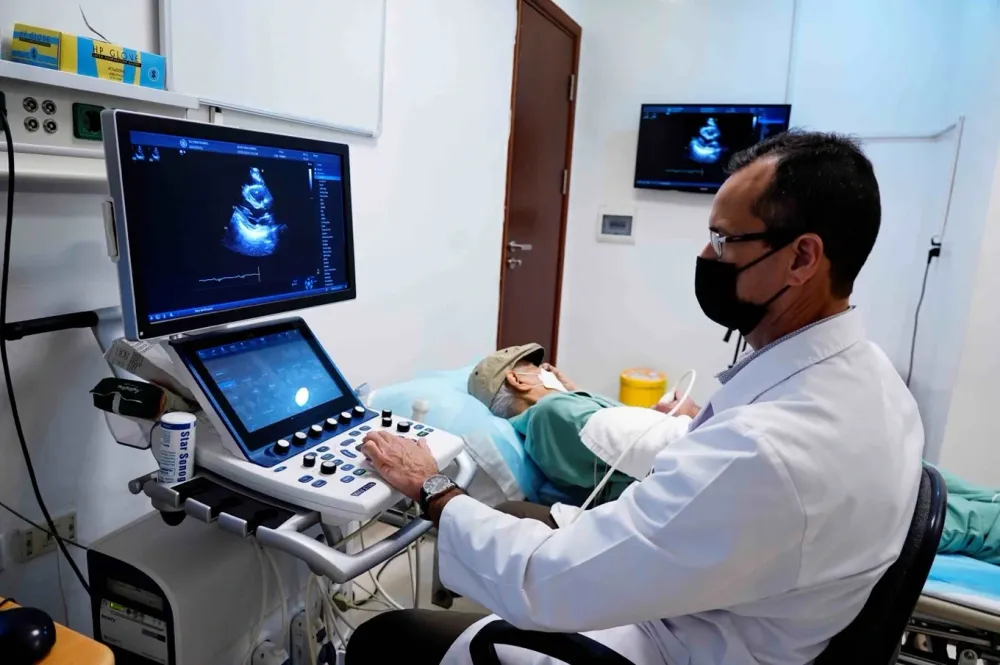
In the near future, Vinmec plans to expand its cardiovascular intervention activities following ACC standards, with a focus on advancing techniques such as transcatheter aortic valve implantation (TAVI), aortic stent grafting, electrophysiology, and ablation for arrhythmias.
Prior to achieving ACC certification for coronary intervention, Vinmec had already earned ACC accreditation for heart failure management. By continuously meeting the world's most stringent standards, Vinmec not only ensures high-quality treatment outcomes for patients but also brings Vietnam’s leading private healthcare system closer to its goal of becoming a Center of Excellence (COE) in cardiology.
